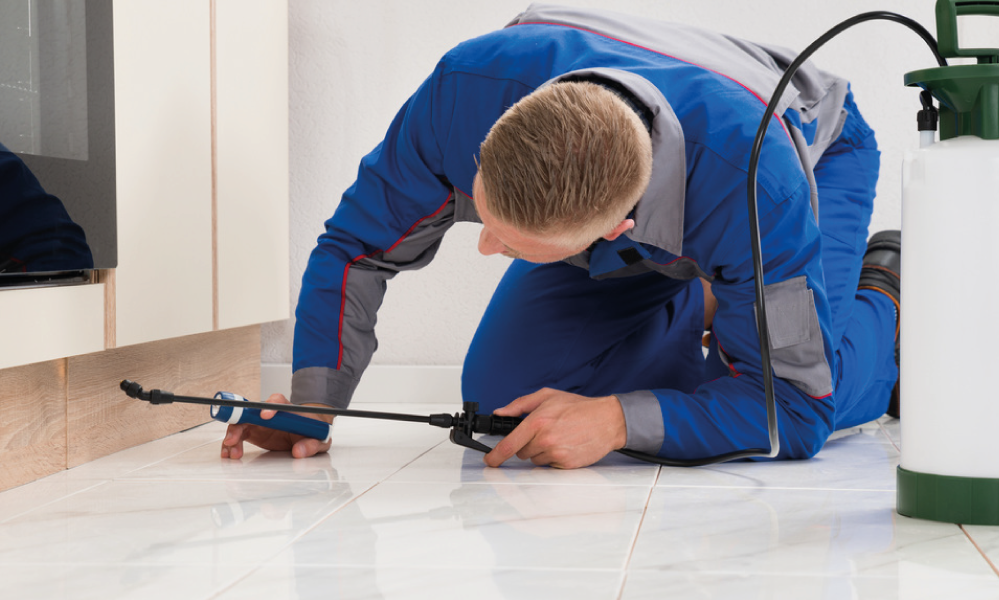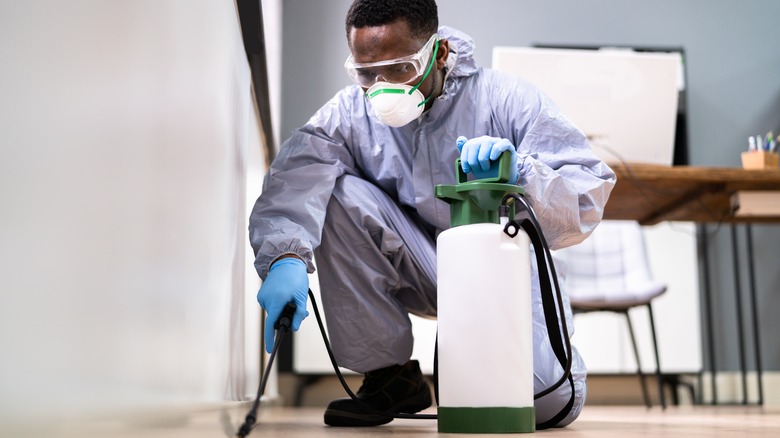Top-rated Pest Control Clovis Providers: Your Peace of Mind
Top-rated Pest Control Clovis Providers: Your Peace of Mind
Blog Article
Comprehending the Numerous Methods to Bug Control: A Comprehensive Overview

All-natural Bug Control Approaches
Employing green strategies such as buddy growing and biological insect control is important for efficiently managing insects in agricultural setups. Companion planting involves growing various plants in proximity to deter pests, enhance nutrient uptake, and improve overall crop health.
Organic parasite control entails presenting all-natural predators or pathogens to control pest populaces. Ladybugs, as an example, prey on aphids, controlling their numbers without the demand for chemical pesticides. One more example is making use of Bacillus thuringiensis (Bt), a bacterium that targets particular insect pests while being safe to people, animals, and helpful bugs.
These environmentally friendly techniques not just lower the dependence on synthetic pesticides however likewise aid protect biodiversity and dirt wellness. By incorporating all-natural pest control methods into agricultural techniques, farmers can achieve sustainable parasite management while decreasing negative effects on the environment.

Chemical Parasite Control Solutions
In addition to natural parasite control methods, the use of chemical parasite control remedies plays a considerable function in properly taking care of pest populations in agricultural environments. Chemical insect control options are created to target details pests that may cause substantial damages to plants. These options usually contain synthetic pesticides that are designed to eradicate insects rapidly and effectively.
One of the essential advantages of chemical insect control services is their effectiveness in managing insect infestations on a large scale. Farmers can use these remedies making use of numerous approaches such as splashing, fumigation, or seed treatment to protect their plants from harmful pests, weeds, and conditions. Furthermore, chemical bug control options are relatively easy to use and can supply fast results, helping farmers guard their returns and lessen economic losses.
However, it is important to make use of chemical bug control services deliberately to lessen potential negative effect on the environment, non-target microorganisms, and human health and wellness. Proper application strategies, adherence to safety and security guidelines, and regular surveillance are important to guarantee the liable use chemical pest control remedies in agricultural techniques.
Biological Bug Control Approaches
Biological parasite control approaches utilize natural killers or microorganisms to manage bug populations in agricultural setups efficiently. This method provides a lasting and green solution to pest administration, reducing the reliance on artificial chemicals and minimizing damage to the setting. One common biological control strategy is the introduction of natural opponents, such as ladybugs or parasitical wasps, to target details insects. These killers prey on the insects, assisting to control their populations normally - pest control clovis.
Another biological control method involves using pathogens like bacteria, fungi, or viruses to contaminate and eliminate parasites. These microbial representatives can be splashed on plants or introduced into the soil to combat numerous parasites without damaging advantageous insects or other wild animals. In addition, the usage of scents to interrupt the mating patterns of pests is another effective biological control technique. By interfering with their recreation, this approach assists to that site minimize bug populaces without the requirement for chemical intervention. In general, biological parasite control strategies supply a sustainable and targeted service to pest monitoring in farming.
Integrated Insect Management (IPM)
Integrated Pest Administration (IPM) is a detailed method that combines numerous bug control strategies to properly handle and decrease pest populaces in agricultural systems. IPM concentrates on lasting prevention of bugs through a combination of organic, social, physical, and chemical control techniques. By incorporating these various techniques, IPM intends to decrease dependence on chemical pesticides, minimize environmental influence, and advertise sustainable bug monitoring practices.
One secret facet of IPM is the use of biological controls such as all-natural killers, parasites, and pathogens to control bug populaces. This method takes advantage of the power of nature to keep an equilibrium between insects and their natural opponents without creating injury to the environment.
Furthermore, IPM entails social practices like crop sanitation, environment, and turning adjustment to create unfavorable problems for parasites and interrupt their life process. Physical controls such as mulches, traps, and obstacles are also utilized to avoid pest infestations.
Mechanical and Physical Pest Control Strategies
Making use of non-chemical techniques, such as mechanical and physical insect control techniques, is a vital element of extensive insect management approaches, building on the foundation of Integrated Pest Management's all natural technique. Mechanical insect control involves using physical barriers or traps to protect against bugs from accessing and damaging plants or frameworks. This method can consist of methods like installing displays on windows, using row covers in farming, or employing sticky catches to capture insects.
Physical parasite control techniques, on the other hand, concentrate on directly removing insects through physical methods. For instance, using warmth treatments to eliminate bed webpage pests or vacuuming up parasites like ants or spiders can be reliable ways to take care of invasions without the use of chemicals. By including these mechanical and physical pest control strategies into an Integrated Parasite Administration plan, people and specialists can minimize dependence on chemicals while still effectively lessening and taking care of pest populations damage.
Conclusion

In addition to all-natural pest control methods, the usage of chemical pest control options plays a significant function in efficiently taking care of pest populations in farming atmospheres.One of the essential benefits of chemical parasite control services is their effectiveness in regulating bug infestations on a huge scale.Integrated Parasite Administration (IPM) is an extensive strategy that integrates various bug control strategies to properly manage check over here and decrease pest populations in farming systems.Utilizing non-chemical techniques, such as mechanical and physical bug control strategies, is a vital aspect of detailed pest administration approaches, building upon the structure of Integrated Parasite Administration's all natural approach. By integrating these physical and mechanical pest control methods right into an Integrated Parasite Management strategy, people and professionals can lower reliance on pesticides while still successfully lessening and taking care of pest populations damage.
Report this page